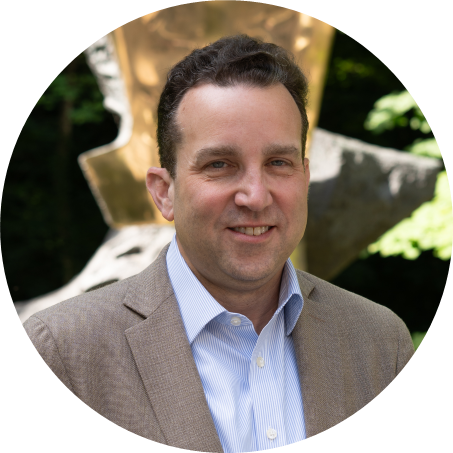The practice of medicine and advancing organizational success in healthcare delivery depends on leadership by physicians, yet most physicians lack formal leadership training. As a growing body of evidence demonstrates, to achieve success in high-quality clinical care, innovative research, education, financial stewardship, population health, and workforce joy in work and wellness, physicians need to be engaged and effective leaders.
This week, 34 OMI fellows from 25 different countries gathered at Schloss Arenberg to strengthen their leadership skills. Dr. Evan S. Fieldston, Associate Chief Medical Officer at the Children’s Hospital of Philadelphia, led the course. He was supported by expert faculty members Dr. Patricia A. DeRusso, Brendon Ardieta, and Scott Switalski.
Using the model of “Lead Self, Lead Others, Lead Organization”, faculty members engaged participants in an intensive and interactive course that focused on leadership behaviors and communication styles as the foundation for development of capabilities to lead teams and organizations around challenges. Building on this foundation, fellows learned and participated in peer coaching to use skills and activities in coaching, feedback, strategic planning, and change management to move from problem to plan. On Friday, participants presented leadership challenges they are currently facing and how they can solve them with what they have learned during the course.

Evan S. Fieldston, MD, MBA, MSHP
OMI Course Director
As healthcare grows more complex, it is more important than ever for physicians to be effective and engaged leaders. I believe that combining clinical knowledge with skills in domains such as communication, collaboration, systems-thinking, improvement science, innovation, and strategic planning, physicians augment their one-to-one doctor-patient duties towards affecting positive change for patients and healthcare staff across clinics, hospitals, health systems, and beyond.
As healthcare grows more complex, with intersecting needs to improve and sustain safety and quality of patient care, steward limited resources towards high-value goals, improve population health and foster joy in work and wellness for clinicians and others who provide and support the care, it is more important than ever for physicians to be effective and engaged leaders. I believe that combining clinical knowledge with skills in domains such as communication, collaboration, systems-thinking, improvement science, innovation, and strategic planning, physicians augment their one-to-one doctor-patient duties towards affecting positive change for patients and healthcare staff across clinics, hospitals, health systems and beyond.
It was useful to incorporate the lessons learned into my presentation. I definitely feel more equipped to solve my leadership challenge and other challenges that I am facing back home.
The lecture on emotional intelligence was an eye-opener for me. It helped me to understand how I can solve most of my personal leadership challenges.
This was my fifth time participating in an OMI program. The OMI definitely helped to advance my career, from the first internal medicine course I attended just the week after having finished my specialization and the pulmonology course when I was enrolled in my subspecialty program to the public health law and economic evaluation in healthcare seminars when I was appointed as the Medical Director of the Institute for Lung Diseases and Tuberculosis. This week’s seminar was the crown of my education and training provided by the OMI.
It was a great experience to share my leadership challenge, understand the benefits of coaching, and get feedback from faculty members and participants. This course was an extraordinary opportunity to gain new knowledge.
- 34 fellows
- 25 countries
- 1 workshop on DISC & leadership styles
- 1 workshop on leadership challenges
- 1 workshop on leading to measurable success











